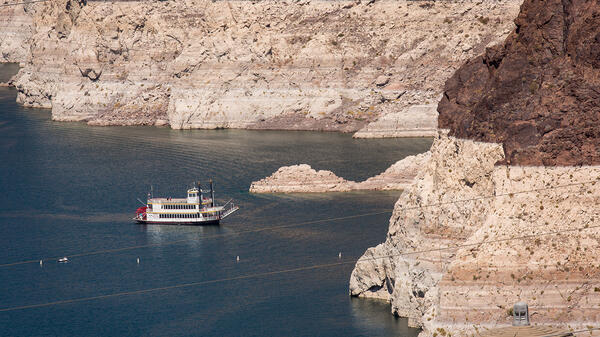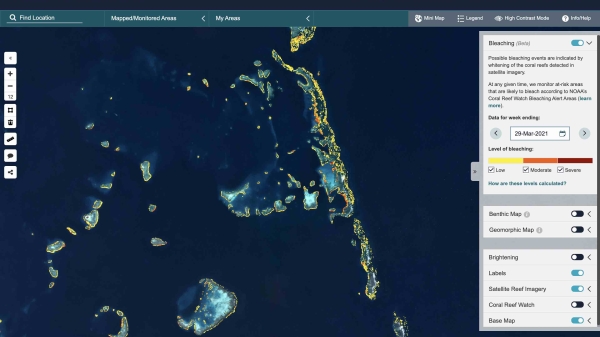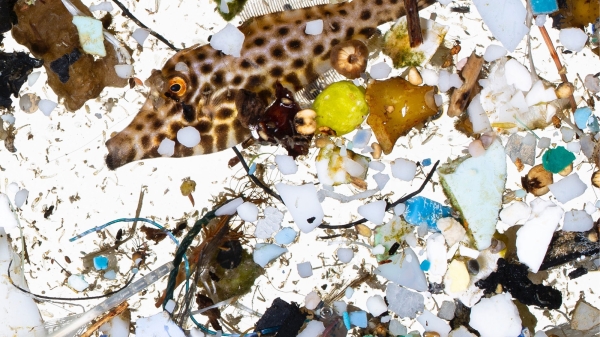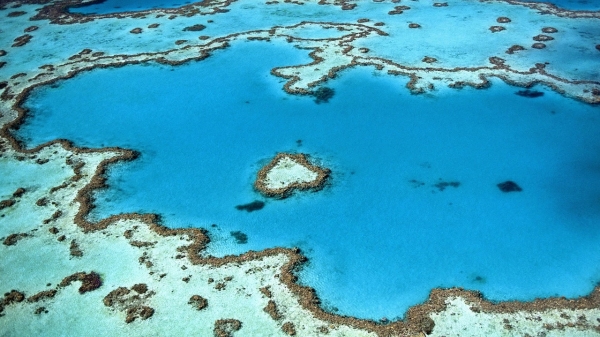Search ASU News stories

|
ASU interdisciplinary studies graduate brings love for design, Japanese language and culture, and mindfulness to portfolioEditor's note: This story is part of a series of profiles of notable spring 2021 graduates.… |

|
Researchers discover new wrinkle in ancient ocean chemistryScientists widely accept that around 2.4 billion years ago, the Earth's atmosphere underwent a dramatic change when oxygen levels rose sharply. Called the "Great Oxidation Event" (GOE), the oxygen spike marks an important milestone in Earth's… |

|
New ASU mapping tool shows holistic view of water in ArizonaDoes your neighborhood have a guaranteed water supply? Is ocean desalination the future of drinking water? Do you know what percentage of Arizona’s water comes from the Colorado River? Water is a critical issue in Arizona, and a new water-mapping tool… |

|
The inconvenient consequences of a culture of convenienceSingle-use plastics — such as cups with straws, takeout containers and water bottles — are so common in our culture of convenience that we often don’t give them a second thought. But their momentary utility is misleading: These items stick around a really long time… |

|
World’s first satellite-based monitoring system goes global to help save coral reefsThe current prognosis for our world’s coral reefs is bleak. With ever-warming, more polluted and acidic oceans, models predict that 70% to 90% of coral reefs will be lost by 2050. To date, there has not been a global system in place to monitor coral reefs under the… |

|
ASU researchers discover Earth's blobs are remnants of an ancient planetary collisionEditor’s note: This story is featured in the … |

|
Prey-size plastics are invading larval fish nurseriesA new research study has revealed that larval fish species from various ocean habitats are now being threatened by plastic pollution that infects their nursery habitats — at levels on average eight times higher than those recently found in the Great Pacific Garbage… |

|
Swirling plastic ocean debris a growing problemIf aliens flew by our planet and looked down at the Great Pacific Garbage Patch, you wouldn’t blame them for moving along. Look at the numbers. It’s somewhere between twice the size of Texas and three times the size of France. It contains 80,000 tons of debris.… |

|
Heat and humidity will be a major factor for Olympic athletesThe Tokyo Olympics, starting July 23, will be remembered for three things: a complete lack of spectators, being postponed a year because of a pandemic and searing heat. |

|
A new vision of coral reef sustainabilityThe world’s coral reefs are at risk. To save them, we’ve got to see them — clearly, and in the “big picture.” Fans of Disney’s "Finding Nemo" see coral reefs as vibrant, colorful underwater worlds. In real life, the world’s reefs face serious… |